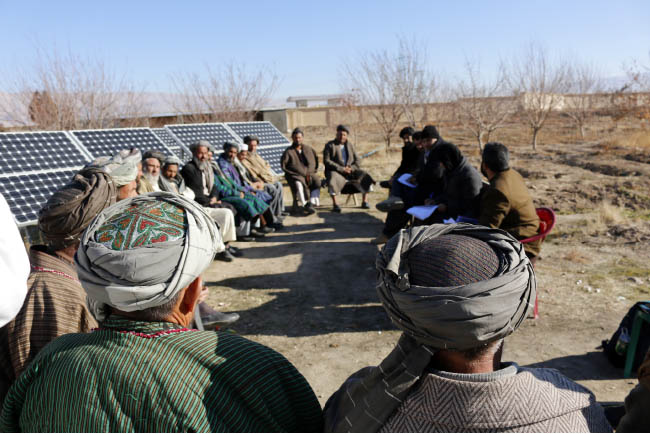The equality of tribes and ethnic groups is a highly significant issue and one of the fundamental principles in human rights discourse, which has been stressed in international instruments and national laws, mainly in Afghanistan. Religious tenets also constantly stressed on equality of mankind and lack of discrimination. The differences on the grounds of one’s race, color, gender, language, etc. are stated to be the reason behind understanding and evolution of human societies that yet to be changed into reality in Afghanistan. On the contrary, tribes sought to deny the rights of one another, stoke racial, religious and tribal conflicts, treated one another harshly, and all intentions are based on refusing one another. It comes as we are supposed to hold the rights and dignity of one another in respect rather than denying them or resorting to violence. Claiming concession and monopoly have been the main reason behind the pain and sufferings of Afghan nation throughout the history and led to severe conflicts.
The claim for concession manifested itself either in the frame of religion or race and language and so on. According to the martyred leader Abdul Ali Mazari, we will have to consider national unity a principle in Afghanistan. In other words, national unity in Afghanistan should be a red line for all nations. Hence, those who strengthen the spirit of discrimination and concession intentionally or unintentionally across the country and take step for their self-interests, will push the society to chaos and tragedy. This act will lead one to a quagmire rather than ethnic honor or pride and the history will record the one involved in this issue as national traitor. Therefore, we all need to cultivate the spirit of tolerance, strengthen common interests and mutual respect and share common sufferings which will be the only solution to this problem and will put an end to discrimination and prejudice.
Equality among tribes in Afghanistan means to have equal rights and responsibilities, equalities in the realm of economic, social, political and cultural issues. Afghanistan’s Constitution has recognized this valuable principle as it is stated in its preamble that the Constitution is approved to “form a civil society void of oppression, atrocity, discrimination as well as violence, based on rule of law, social justice, protecting integrity and human rights, and attaining peoples' freedoms and fundamental rights.” Similarly, it is said in article 22, “Any kind of discrimination and distinction between citizens of Afghanistan shall be forbidden. The citizens of Afghanistan, man and woman, have equal rights and duties before the law.”
Based on the stress put in Constitution, the principle of equality should remain neither an elusive dream in Afghan society nor a permanent ambition for citizens. We need not neglect insisting on the implementation of constitutional values or sacrifice the fundamental rights of citizens for our personal or factional interests. Claiming rights and justice is an invaluable issue if it is based on law but not means for gaining individual or factional interests.
Afghanistan is a multi-ethnic country with various race, creed and language and with black record of discrimination and claiming racial and ethnic superiority. According to history, claiming superiority and monopoly were one of the major reasons behind conflicts which disregarded the equal rights of citizens, and the national resources and opportunities were within the realm of a certain group. Currently, it is believed that the ground is paved for accepting equal rights of citizens and equal status for all tribes and ethnic groups are included in the Constitution. In addition to recognizing this principle, Afghanistan’s Constitution defines the tribes in Afghanistan as, “The nation of Afghanistan shall be comprised of Pashtun, Tajik, Hazara, Uzbek, Turkman, Baluch, Pachaie, Nuristani, Aymaq, Arab, Qirghiz, Qizilbash, Gujur, Brahwui, and other tribes. The word Afghan shall apply to every citizen of Afghanistan….”
Hence, considering legal and religious bases regarding the equality of race, tribe and ethnicity, the issue of equality should be viewed from different perspectives such as equality in human dignity, equality in rights and responsibilities, equality in determining destiny, equality in creed and religion, equality in exploiting national investments, equality in getting education, equality in being provided opportunities in employment and appointment and so on. The institutionalization and actualization of these valuable concepts need collective view rather than individual, ethnic or factional view. So, all ethnic groups are respectable and must not be treated with humiliation. The ground must be paved for all tribes to gain their rights without resorting to violence. Stressing on detrimental conflicts and selfishness will result in nothing other than tribal tensions and let the history repeat itself.
In brief, the significance of officials’ attention to this issue is beyond doubt and the equality of tribes and ethnic groups is a vital issue in social, cultural, religious and political arenas in Afghanistan and hoped to be held seriously.

